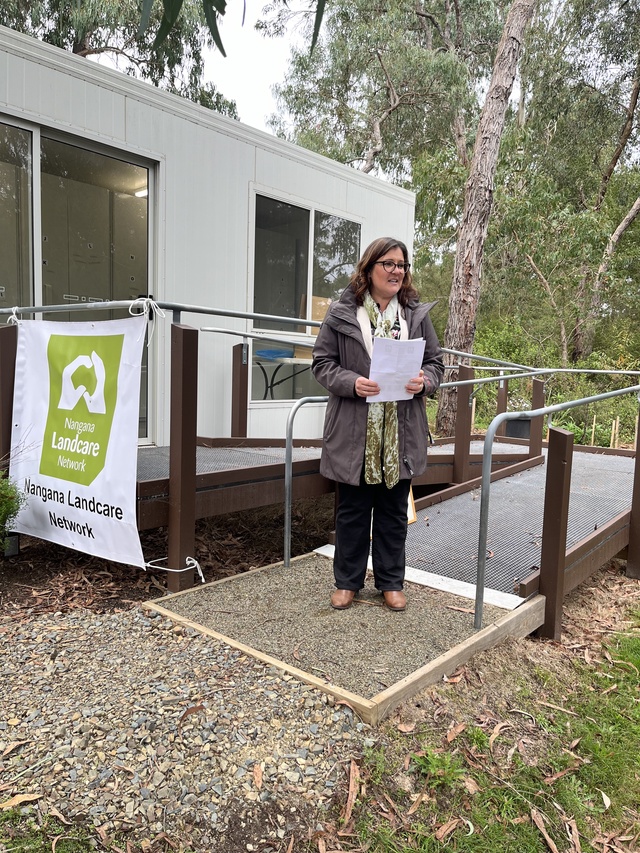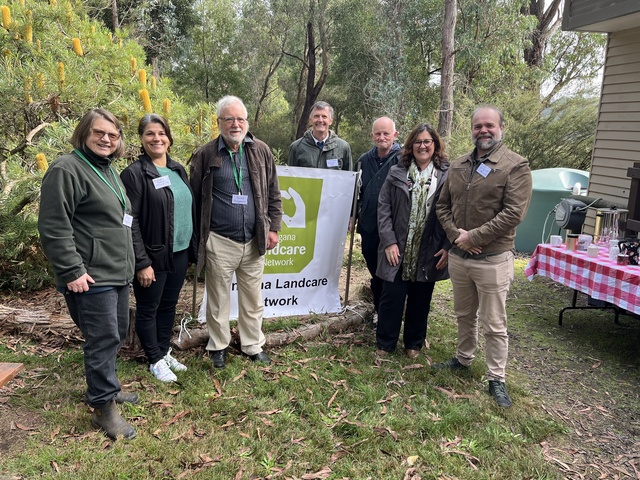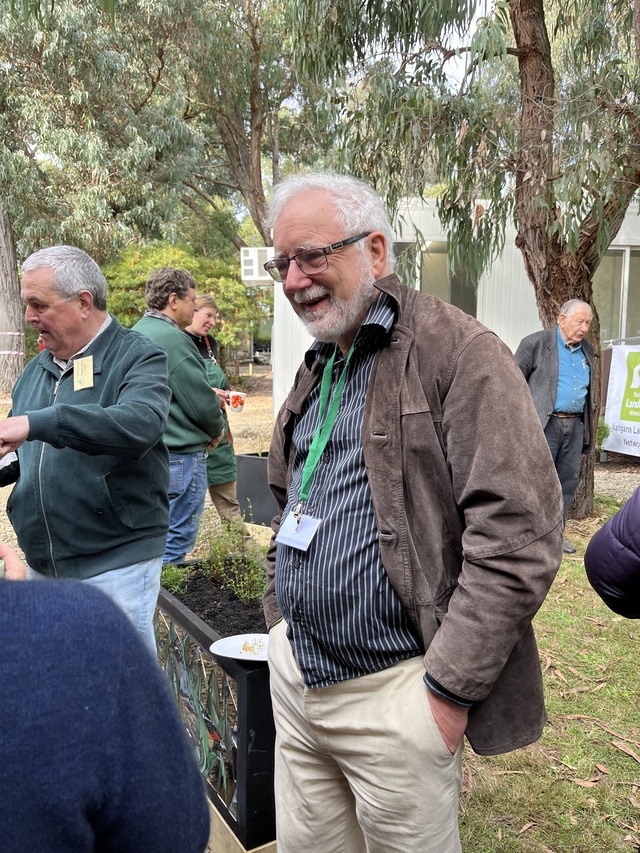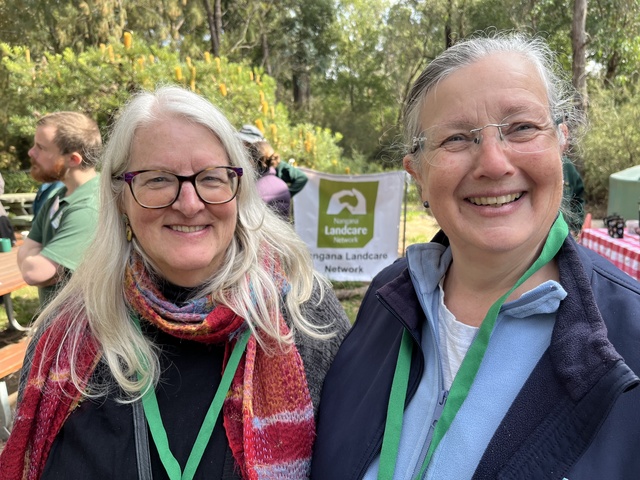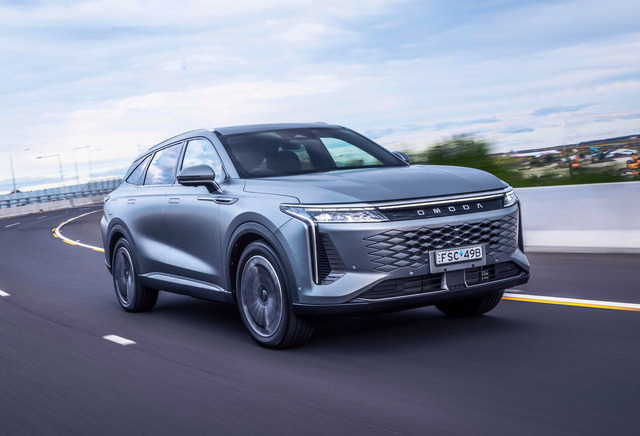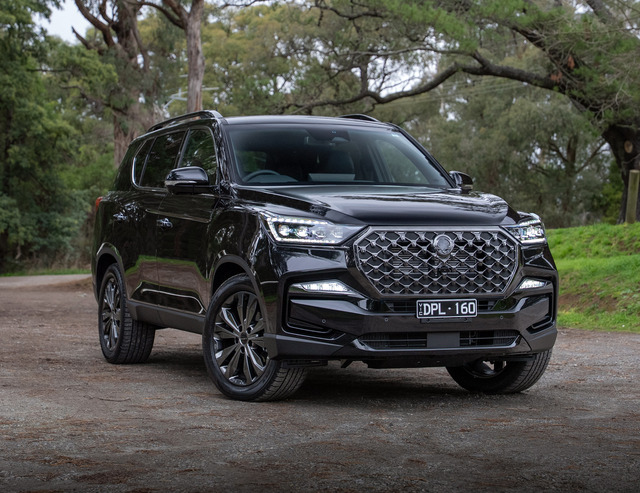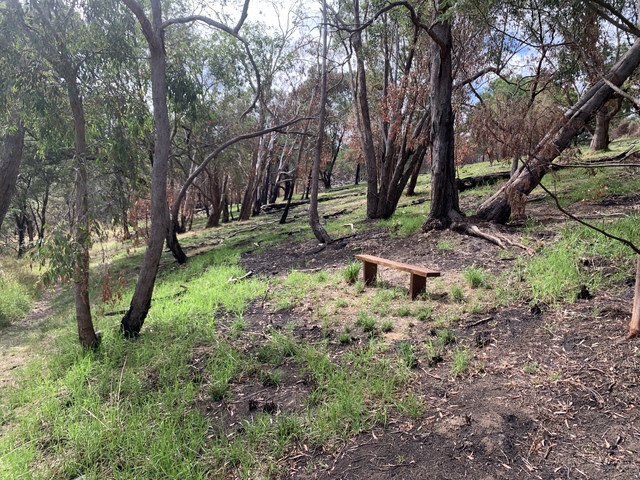The Nangana Landcare Group celebrated their launch on 4 May, after a turbulent three years of finding their footing amidst Covid complications.
Joined by Daniela De Martino MP, the Network members came together for a lovely morning tea, bustling with speeches and quiet excitement as the Network looked forward to “bold plans,” they hope to bring to life in the near future.
“Nangana Landcare Group will be making an expression of interest to the Landcare Victoria New Futures pilot program, which is a 20 year vision for a strategic plan to be financed by green finance,” Network Secretary Jenny Lyndon said.
“It’s much bigger than anything we’ve ever done, for sure. And it involves business, social and cultural aspects, so we will have to step right out of our little environmental bubble and work together.
“We recently had a vision workshop at the Puffing Billy Lakeside Visitor Center, and that was incredibly successful. So that indicated to us that we can work together and we can develop a 20 year vision and strategy.”
The Network’s formation will see the combined efforts of local landcare groups who have worked tirelessly for decades to advocate for environmental conservation – groups including the Johns Hill Landcare Group, which Jenny has been the proud president of for 10 years.
“Johns Hill has undertaken lots of different projects in planting, weeds and research. We have also been involved in the Woori Yallock Creek Park Alliance, which started in 2007 and resulted in the creation of Victoria’s first Landscape Conservation Area in 2021,” she added.
“Friends of the Helmeted Honeyeater have quadrupled the number of birds surviving at Yellingbo Nature Conservation Reserve in the 35 years that they’ve been operating.
“The Monbulk Landcare Group also spent 11 years with CSIRO developing a fungal biological control wandering trad, the scourge of the Dandenong Ranges.
“And Friends of the Leadbeater’s Possum spent 19 years trying to preserve the habitat of the possum, and they actually achieved that, as I’m sure you’re aware.
“So our network is a culmination of lots of people who provide their skills for free to develop ideas and plans for the future.”
But Jenny and the other members of the network are advocating for much needed funds to support their conservation efforts.
“We need a lot of money.
“Even from the recent state budget, you would think that none of the politicians actually understand the ground they walk on, the air they breathe, and the water they drink.
“It’s quite amazing to us in the environmental sector, that people simply don’t understand that Australia’s future depends on the environment.
“It’s really important, because we have to pass on a viable landscape restoration process to the next generation.
“And in future, this sort of work cannot be done just by volunteers, it’s just not possible. The scale of the task that we have to face needs younger people with professional careers in natural resource management, and landscape restoration. And there are hundreds of environmental science students pouring out of universities who can’t get jobs. And that’s just crazy.
“So that’s our plan. We’re not sure of the shape of it, or the dimensions of it. But after our vision workshop, we’ve selected an area that is quite large – 100,000 hectares – and we’re working very hard on developing that structure, and the capacity to market this project to private sector investors, so that we will then be able to employ contractors, community developers and placemakers.
“The principles of Landcare Victoria are that everything should be community led, and we are very much in favor of that model.
“We just want to make it so that, whatever the land use, it is not inconsistent with conservation. You can have farming and conservation, you can have a cemetery and conservation, you can have a railway line and conservation.
“Everybody is moving towards that same idea that you have to completely look after the land that you are using while you’re using it, not just exploit it and walk away.
“We are working towards an intergenerational project, not simply passing on the responsibility for the environment to the next generation, but the resources to actually do something.
“We want to give the next generation the hope, the inspiration, the opportunity and the money to do it.
“That’s the goal.”

